![Cheese ]GettyImages-664658023](https://dmrqkbkq8el9i.cloudfront.net/Pictures/480xany/1/8/6/282186_cheesegettyimages664658023_540979.jpg)
Cheese sales are melting away. After two years of significant growth during the pandemic, volumes have dived by 27.7 million kilos, resulting in a £23.4m hit to value.
As Britain enjoyed a full year without lockdowns, consumers inevitably stopped stockpiling fridge staples. That effect has been compounded by price rises.
“Rising inflation has slowed down growth, as those indulgent and impulsive cheese purchases are no longer seen as necessary,” explains Matthew Fleming, senior analytics executive at NielsenIQ.
“Shoppers are cutting back purchases in the category or switching to cheaper alternatives, such as own label.”
That explains why private label cheese has grown 1.2% in value – and why not even Cathedral City, the nation’s favourite cheese, could buck the downward trend for brands. Its volumes have fallen 20.6%, pushing down value by 12.9% – or £37.2m.
That decline is considerably faster than the one suffered by Cathedral City’s nearest rival in block cheese, Pilgrims Choice. It’s down 5.7% in value and 10.2% in volumes – albeit from a smaller base.
The brand’s cost advantage likely played a part. It comes in at an average of £6.87 per kilo, compared to Cathedral City’s £8.31.
It’s also down to brand loyalty, insists Kerry Alexander, brand director at owner Ornua Foods. “Consumers might be stressed and they might be under pressure, but there is still room for that brand love,” she says.
Plus, in a bid to recoup lost sales, Pilgrims Choice gave its packaging a makeover in the summer and kicked off a £2m campaign centred on taste.
Other brands in decline, meanwhile, have focused on tapping the vegan mega-trend. See Cathedral City and Philadelphia, the latter of which is down £6.8m. Both launched plant-based products in September and January respectively, following years of development (see Top Launch, below).
January also saw Babybel make its plant-based debut. The brand is one of five in the top 20 to achieve growth.
Significantly, the biggest three – Dairylea, Babybel and Dairylea Lunchables – are snacking cheeses. Between them, they’ve bagged an extra £26.6m thanks to the resurgence in packed lunches.
This trend is also bolstering sales of “quick and easy-to-use formats” such as sliced and grated cheeses, says Lactalis, which this year added a sliced mozzarella line to its Galbani Continental brand.
Meanwhile, Lactalis’ Leerdammer, which offers predominantly sliced formats, has grown 1.4% in value after being acquired from Bel in September 2021. So at least some brands are maturing, not melting.
Top Launch 2022
Cathedral City Our Plant Based | Saputo
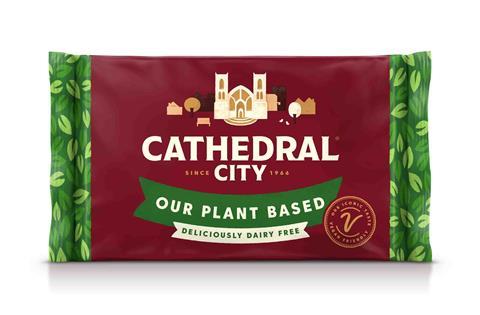
The UK’s biggest cheese brand made its vegan debut in September, in what it hailed as a “momentous occasion”. Made with coconut oil and potato starch, Cathedral City’s Our Plant Based is available in block (rsp: £3.60/280g), sliced (rsp: £2.30/150g) and grated (rsp: £2.30/150g) formats. The result of several years’ development, its “creamy” taste is based on the brand’s regular cheddar – helping it deliver “the great quality people know and expect from Cathedral City”.
The Grocer Top Products Survey 2022: How can brands stay in focus?
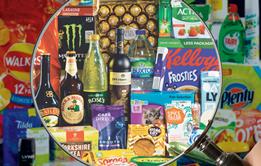
Commodity price hikes, the war in Ukraine and inflation have changed the way Brits shop in the past year, while also piling pressure on suppliers and retailers. Which brands and categories have negotiated the system shock best?
- 1
- 2
- 3
- 4
- 5
- 6
- 7
- 8
- 9
- 10
- 11
- 12
- 13
- 14
- 15
- 16
![Cheese ]GettyImages-664658023](https://dmrqkbkq8el9i.cloudfront.net/Pictures/80x50/1/8/6/282186_cheesegettyimages664658023_540979.jpg) Currently
reading
Currently
reading
Dairy – cheese 2022: Inflation and end of Covid melt cheese
- 18
- 19
- 20
- 21
- 22
- 23
- 24
- 25
- 26
- 27
- 28
- 29
- 30
- 31
- 32
- 33
- 34
- 35
- 36
- 37
- 38
- 39
- 40
- 41
- 42
- 43
- 44
- 45
- 46























![Cheese ]GettyImages-664658023](https://www.thegrocer.co.uk/Pictures/80x50/1/8/6/282186_cheesegettyimages664658023_540979.jpg)










































































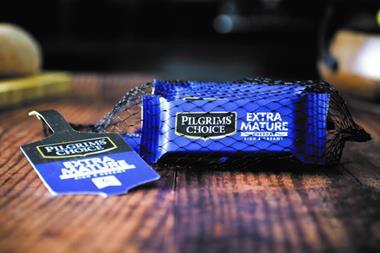
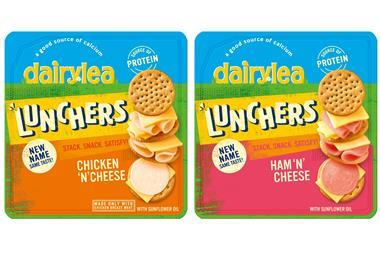
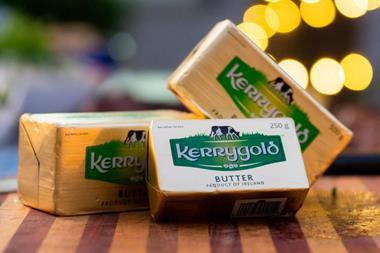
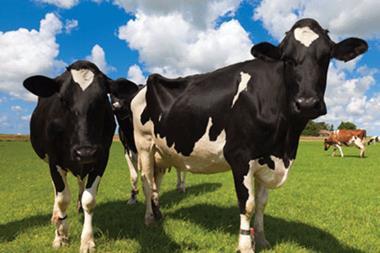
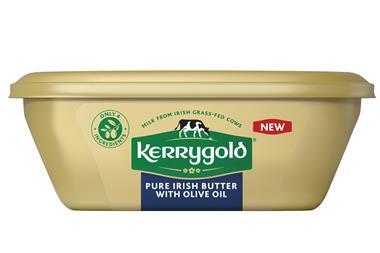







No comments yet